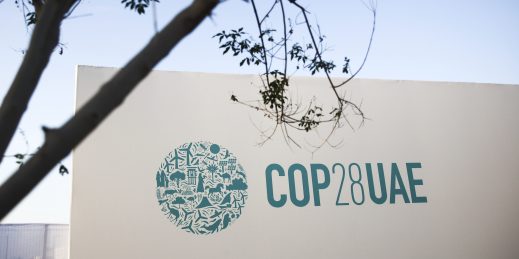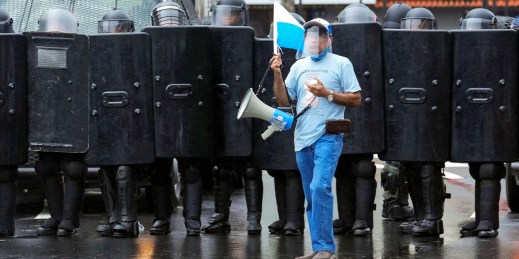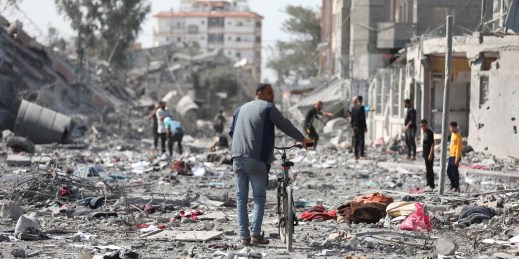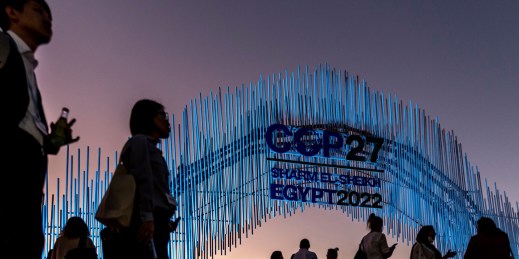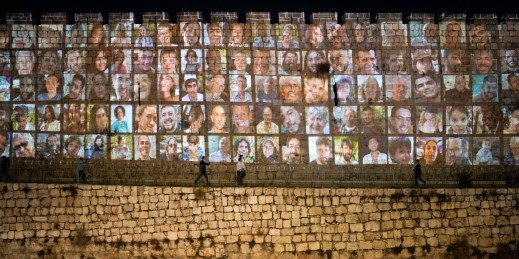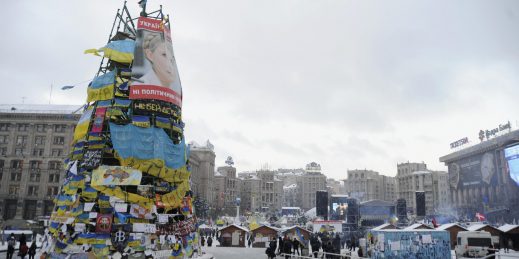Latest Archive
Free Newsletter
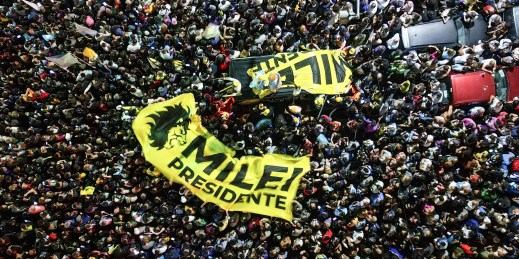
It is tempting to view the win in Argentina by far-right libertarian economist Javier Milei followed by the first-place finish in the Netherlands by the anti-Muslim firebrand Geert Wilders as evidence of a global movement. But it would be a mistake to view these two earthquakes as part of the same tectonic pattern.
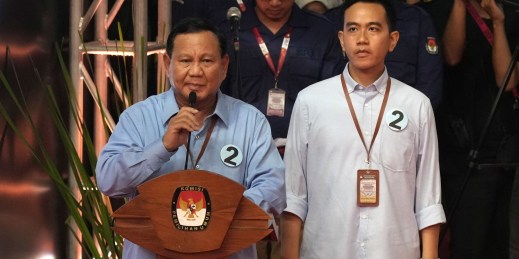
Campaigning has officially begun for Indonesia’s Feb. 14 presidential election, a race in which the two frontrunners are likely to face off in a runoff round. But even before the official campaign season got underway, President Joko Widodo’s dynasty-building efforts introduced no small amount of intrigue and controversy to the race.
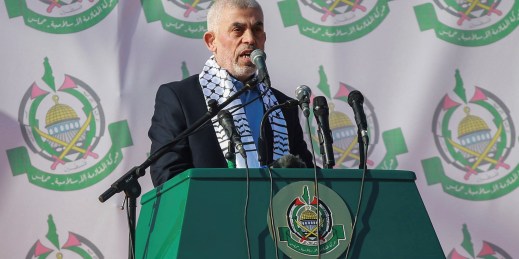
From a military perspective, Hamas’ attack on Israel on Oct. 7 was a remarkable achievement. As a strategic move, however, the attack may jeopardize much of what Hamas has achieved in its almost 40 years of existence. That raises the question of whether this attack was a miscalculation, or whether there was something more to it.
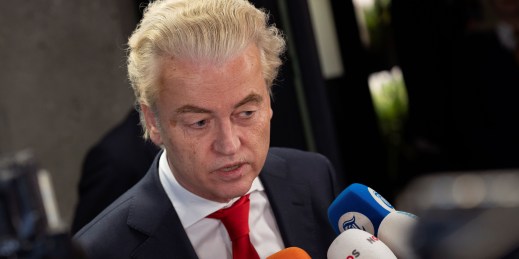
The far-right PVV party’s victory in the Netherlands’ elections has fueled frantic speculation about what the outcome means for European democracy. Less attention has been paid to the broader trends enabling a party as radical as the PVV to get to a position where 24 percent of Dutch voters might give it the benefit of the doubt.
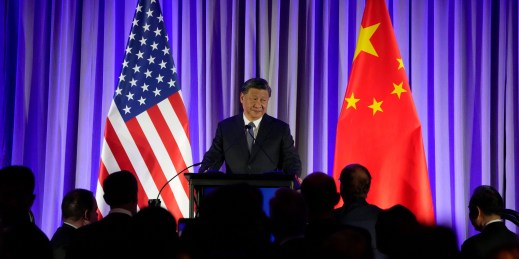
Two weeks ago in San Francisco, Chinese President Xi Jinping gave a speech to a gathering of U.S. business leaders that was chock full of his signature ideological ideas, including “Chinese-style modernization.” Why did Xi lecture them about these ideas? And what does Chinese-style modernization mean for U.S.-China relations?
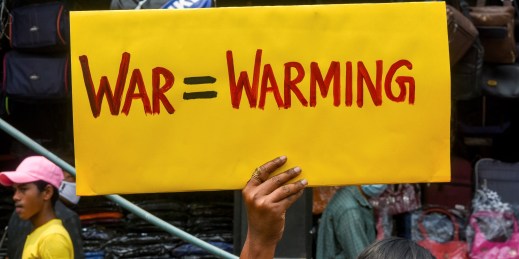
Addressing climate resilience needs in fragile states is one of the biggest outstanding gaps in climate finance. However, recent research suggests it is also one of the biggest opportunities, including for addressing crucial conflict drivers. COP28 will bring together the major stakeholders needed to tackle this problem.
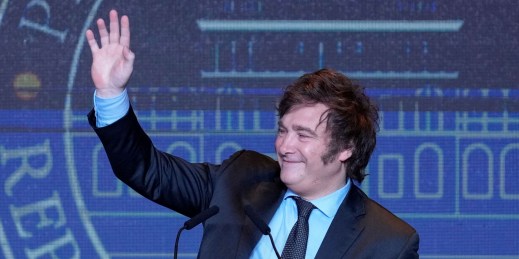
The big question hanging over Argentine President-elect Javier Milei’s term in office is whether he can turn around the country’s crisis-stricken economy. But if Milei’s control over Argentina’s economic fate is limited, he’ll have free rein over the country’s foreign policy, where he is also planning some very large shifts.
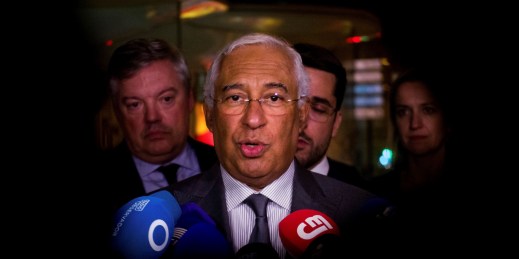
Three weeks ago, Portuguese Prime Minister Antonio Costa submitted his resignation amid a corruption scandal, ushering in what is probably the biggest crisis in Portuguese politics in at least 20 years. The snap elections called for March promise to be the most contested and important ballot in that same period.
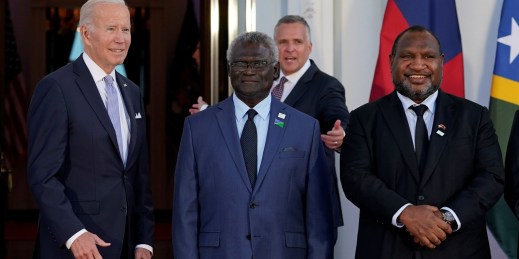
The Solomon Islands has become the focus of a fierce geopolitical rivalry between the allies of the U.S. on one hand, and China on the other, after announcing an extensive security pact with Beijing a year and a half ago. But some are concerned that great power competition is overshadowing national development priorities.
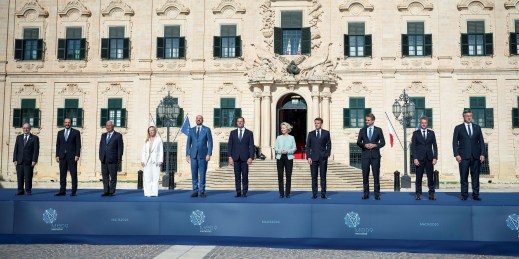
European states are debating the war in Gaza as a foreign policy crisis with little direct connection to the internal workings of the EU. Yet as the conflict continues to escalate, the efforts by Brussels to keep the horror engulfing Gaza and Israel at arm’s length from the EU are unlikely to remain sustainable for long.
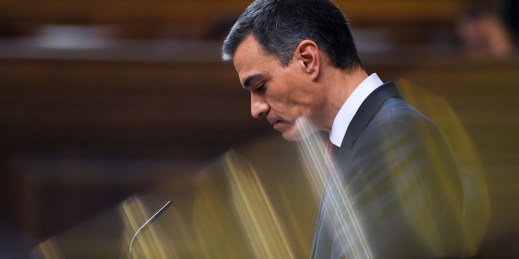
Pedro Sanchez was elected Spain’s prime minister last week in a parliamentary investiture that represents a validation of his high-risk gamble to call early elections that he was widely expected to lose. But the win comes after weeks of massive protests that reflect why this is his most controversial victory to date.

